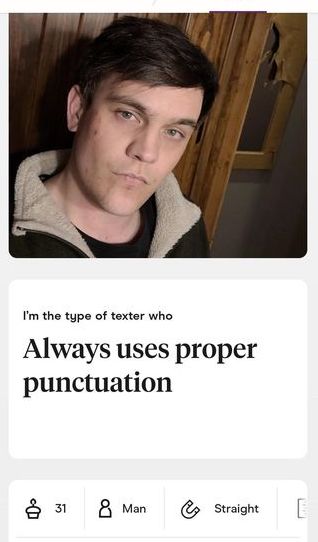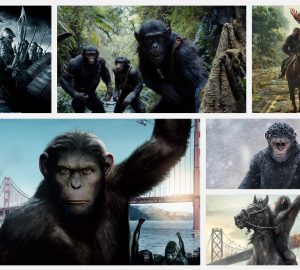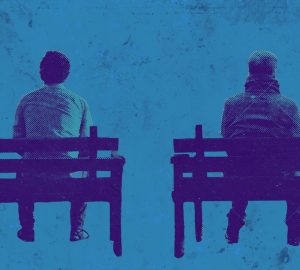By AJ Firstman. AJ Firstman is a writer and Atlanta native working on getting his MFA in writing. He is very cool and handsome and good at lying to himself.

This article was submitted by a contributing writer. To have an article published with The Connector, email editor@scadconnector.com.
Mariam, 28, is a soft-spoken Senegalese immigrant and entrepreneur with a jewelry business, an encyclopedic knowledge of evolutionary biology and sociology and a new Hinge account.
“Lol for real?” She replies when I tell her about the piece I’m writing about online dating. I prepare myself for the inevitable ghosting and/or unmatching. Instead, she sends me a voice message.
“I’m conventionally beautiful,” she says with confidence and accuracy, “I always get lots of attention from men in real life and I think I got over 100 matches on Bumble in less than a week.”
I have to pause the recording to laugh. Our experiences are very different. She echoes my thought a few seconds after I press play.
“Guys I know say they, like, get no attention on dating apps. I wonder if it’s who they’re swiping on, or maybe the demographics of the apps they’re using,” she says. “But I’ve only gotten like three matches on Hinge so far, so I don’t know. I’m not used to it.”
Atlanta was rated the second-best city for singles in 2020. It’s slipped to number 18 since then. There are so many places to go, people to meet and dozens of applications and services designed to help the single find someone to love, not to mention the pent-up demand accumulated over two years of masks and occupancy limits. Atlanta in the summer of 2022 sits like a peach emoji in a DM, yearning for love and lovers alike. Being single in Atlanta during the summer of 2022 seems wrong, but the days of meeting women in person seem to be over. It seems like the worst possible option is also the only viable approach: online dating.
I downloaded the big three dating apps — Tinder, Bumble and Hinge — again a few days ago. My profiles are basic.

AJ, 31, Master’s Candidate at the Savannah College of Art and Design. Straight. Passionate about writing, comedy, binge-watching TV shows, politics, and ice cream. Photos include me looking off into the distance, pushing my grandmother’s wheelchair, doing my best impression of a handsome model, posing with two of my female friends, sitting in a chair, and sitting in chair pretending to read an upside-down Horton Hears a Who. About me: 6’3” Writer, semi-literate, guaranteed good time or your money back.
I’ve learned not to expect much from online dating. The numbers aren’t on my side, for one. Some estimates suggest that there are over three times as many men on Tinder as women and nearly twice as many men as women on Hinge. This imbalance means a large number of men are pursuing a relatively small number of women, which may or may not be the root cause of the discrepancies between how both sexes approach online dating.
A frequent complaint from male love-seekers is that they receive very few likes and fewer matches, while some women say they receive far too many likes to keep up with. There is some data that bears this out. One analysis, for instance, found that while men swipe right on most of the women they view, only around 0.6% of their swipes resulted in matches. The same study found that women were far more selective in their swiping and that they matched with over 10% of the men they swiped right on. A separate study found that the median women on Tinder swiped left on around 95% of men and matched with more than a third of the men they liked. But don’t go lamenting the fate of single men just yet. The grass isn’t any greener on the female side of the tracks.
Some of the issues facing women in the world of online dating should be obvious to anyone who has ever used the internet, spoken to a woman, or met a man. Women are at least twice as likely to receive some form of sexually explicit harassment or abuse online, including a staggering number of unsolicited images of male genitals — which, unsurprisingly, women don’t like — and the number of matches they receive doesn’t necessarily lead to better outcomes.
Meagan Pusser, 24, says she didn’t encounter many “mean men” online, but she makes it clear that she went into it with potential harassment on her mind. “I’ve tried Tinder, Bumble and Hinge and I’d say Bumble is my favorite because it limits the amount of creepy upfront messages you get on Tinder and Hinge,” she says. She shakes her head. “I had a guy send me a Shaq gif complete with a dick pick that pretty much scarred me…though if nothing else I’ve gotten a lot of great TV show, movie, book and music recommendations from the conversations.”
Katey, 31, met her long-term boyfriend on Bumble and she shudders as she recalls her days of online dating. “It was a mess. Nothing but guys looking for hookups.”
An instructive, if anecdotal, example comes from reddit user alwaysstaysthesame, a (at the time) 23-year-old woman who only got five dates out of a 13-month stint on Tinder that included 30,062 swipes, 3,645 right swipes and 2,434 matches. Compare that to a male user who spent four years on the platform, swiped over 126,000 times and ended up with only four dates or another 25-year-old user who managed three dates and one relationship after 38,294 swipes. It seems as though the playing fields are uneven in terms of choice and match frequency, sure, but neither looks particularly appealing.
It seems as though the online dating market suffers from a combination of adverse selection and perverse incentives. The relative scarcity of women and lack of likes makes men more likely to like more women’s profiles, while the constant barrage of likes and excess of possible partners — not to mention the obvious safety concerns — make women much more likely to be selective with their swipes.
My own experience follows well in line with the data. I admittedly ditched Tinder pretty quickly when I realized it was primarily 19-year-old girls showcasing their butts (not that there’s anything wrong with that, I’m just too old), a perception that’s apparently backed up by data suggesting over 50% of Tinder users in Atlanta are between the ages of 18 and 25. So Tinder was a bust, but I gave Bumble and Hinge a good five days before deciding that dying alone might not be such a bad idea.
I got precisely six matches on Bumble, all of whom let the timer expire without sending me a message. It was puzzling. Why match if you aren’t going to send a message? I’m hoping they’re some of the people who use dating apps to kill time and boost their confidence or at least that’s what I tell myself to help preserve my self-esteem. I didn’t get as many matches on Hinge, just two and a few one-sided likes, but I do get to have a couple of lovely conversations, something that’s been missing from my experiences on other dating apps.
So what does this all have to do with Atlanta? Great question. Atlanta is a city that’s consistently ranked one of the best places for singles in America, and the number of Tinder and Bumble users in the city has been increasing rapidly in recent years. Love is in the air in Atlanta, or at least in the Wi-Fi.



























